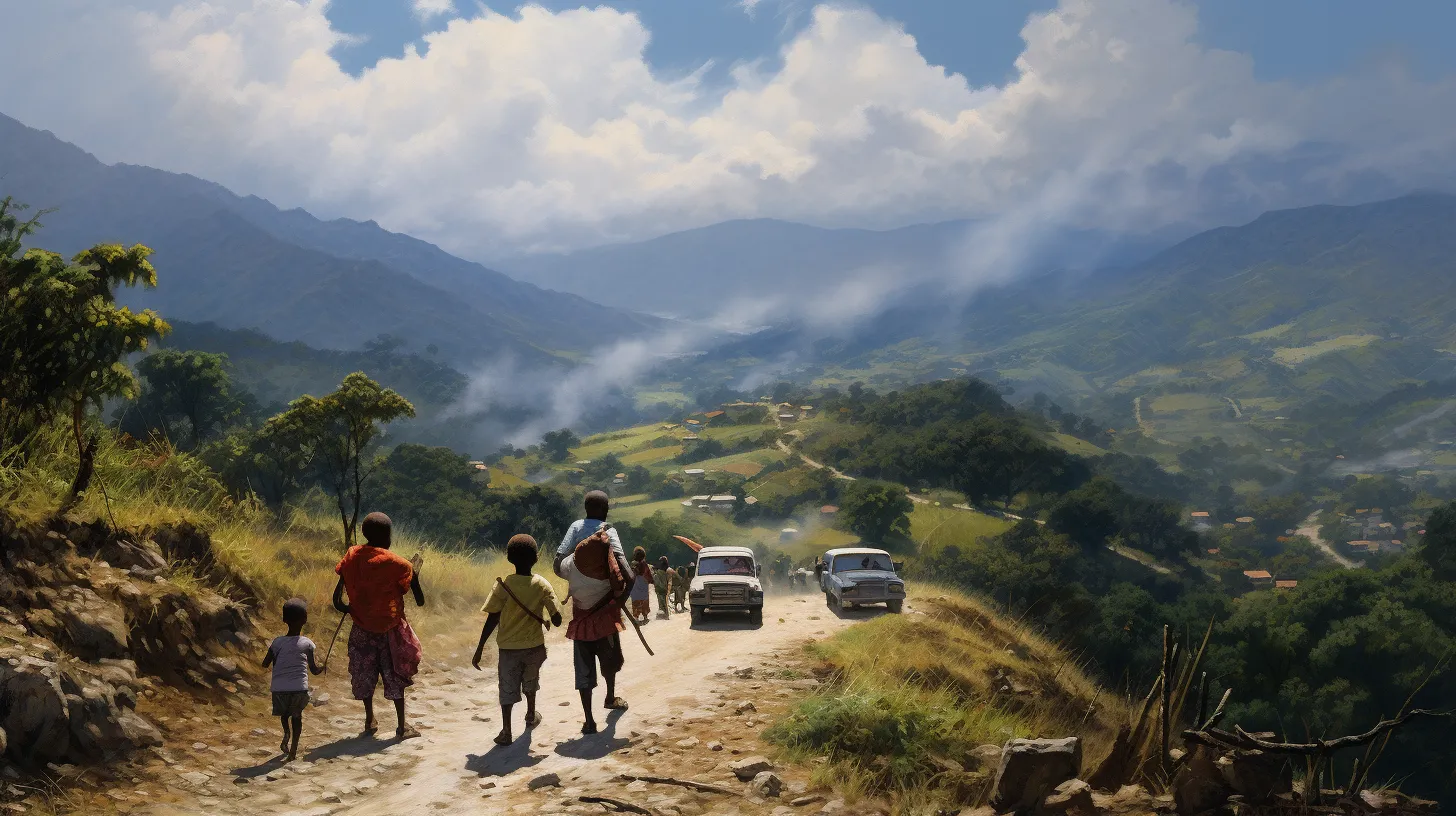Updated analysis of one of Haiti’s most feared armed groups, active mainly in Croix-des-Bouquets and the Cul-de-Sac plain.
The 400 Mawozo rose from a neighborhood robbery crew to an organization capable of paralyzing roads, negotiating with the state, and kidnapping foreign missionaries. Their story shows how weak institutions, corruption, and the arms trade helped gangs gain power over entire communities.
Origins: From “70 Mawozo” to a bigger, bolder gang
The group began as 70 Mawozo, created by Germine Joly, alias “Yonyon.”
At first, the crew specialized in:
- burglaries and armed robberies
- small-scale kidnappings for ransom
In 2014–2015, Haiti’s Central Directorate of the Judicial Police (DCPJ) arrested Yonyon, which briefly calmed the Croix-des-Bouquets area. But the calm didn’t last.
Reorganization and growth
By 2016, the gang reorganized and rebranded itself as “400 Mawozo.” The new name signaled a bigger group and more territory. Their crimes also expanded:
- hijacking cargo trucks coming from the Dominican Republic
- armed attacks that sometimes led to deaths
- kidnappings with higher ransoms
- violence, including reports of sexual assaults during abductions
Even while serving a life sentence in 2018 (without a jury) for kidnapping, rape, armed robbery, illegal gun possession and criminal conspiracy affecting more than 20 victims, Yonyon continued to run the gang from prison. According to local human-rights reports, he had access to phones, money, and even threw parties behind bars — a sign of corruption inside the prison system.
The rise of Wilson “Lanmo 100 Jou” Joseph
As Yonyon stayed in jail, Wilson Joseph — “Lanmo 100 Jou” / “Lanmo san Jou” — took over field operations. Under him, 400 Mawozo:
- consolidated almost all of Croix-des-Bouquets (except Cornillon)
- extended into parts of Tabarre and Pétion-Ville
- built alliances with other powerful figures, including Vitelhomme Innocent
Joseph gained a reputation for brutality and expansion. Life in the areas they controlled became harder — residents faced:
- repeated armed attacks
- business extortion (even police stations were pressured)
- “fines” imposed by the gang’s own “court,” where people could be forced to pay 7,000–10,000 gourdes for small disputes or “disturbance”
Because of this pressure — and the state’s weak response — many families fled their homes.
A gang powerful enough to negotiate
By early 2022, 400 Mawozo was strong enough that state officials opened talks with them.
The government wanted:
- to clear the Malpasse road
- to hold Carnival events in the Center department (Feb 27 – Mar 1, 2022)
According to local sources, millions of gourdes were paid to calm things down. That pause did not last.
Renewed attacks and the fight with Chen Mechan
In April 2022, the gang became active again and pushed to retake areas from the rival group “Chen Mechan.”
Encouraged by recent wins and with access to weapons and ammo, 400 Mawozo tried to expand again in the Cul-de-Sac plain.
International attention: the kidnapping of 17 missionaries
The gang drew global attention after the kidnapping of 17 missionaries, mostly Americans. That single act showed:
- their ability to plan and hold high-value hostages
- their confidence that negotiations would follow
- how dangerous the area around Croix-des-Bouquets had become
After that, the United States charged and sought the extradition of the gang’s top figures, including the most visible leader.
Why 400 Mawozo matters
- They are a symbol of Haiti’s gang problem: a group that started small, survived the jailing of its founder, and kept operating from inside prison.
- They control roads, markets, and daily life for thousands of people.
- Their methods — kidnapping, extortion, taxing local residents — have been copied by other gangs in and around Port-au-Prince.
Conclusion
The story of 400 Mawozo is not just about one violent group — it’s about how impunity, corruption, and poverty allowed an armed gang to act like a local government. Unless prisons are secured, police are properly equipped, and communities get protection, groups like 400 Mawozo will keep returning, even after their leaders are arrested or extradited.



